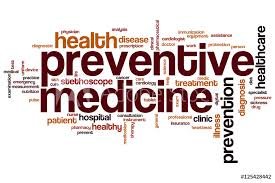Influencing Change – Unique Challenges Facing Preventive Medicine Leaders
I had the pleasure of joining Alan Friedman, founder of J3Personica and Bob Carr, M.D., President of the American College of Preventive Medicine (“ACPM”) for a pre-conference leadership workshop at the ACPM’s Annual Prevention Conference in Pittsburgh, PA on May 19, 2019.
The interactive session was titled, “Influencing Change –New Skills for Physician Leaders”
This workshop included physicians from sixteen different organizations and a variety of leadership roles. The group explored how leadership in medicine has evolved and the new skills and competencies required for success. The session was personalized as the participants had access to a validated, online diagnostic tool which provided insight into their most effective communication, teamwork, and leadership strategies.
Bob Carr, M.D.President, ACPM
For many, this was the first time they’d been provided training on some of these topics, or the benefit of assessment tool specifically designed for individual growth and development
At its core leadership is about relationships – about influencing others and the organization. It’s a big part of preventive medicine – whether its influencing patients, colleagues, health systems, or communities and public policy makers.
The top challenges facing their respective organizations:
Insufficient infrastructure and support to practice and lead effectively
Inability to meet staffing needs
Costs/budget limitations
Lack of resources
Ineffectiveorganizational leadership above them
The biggest barriers to being effective in their leadership roles:
A lack of visibility/awareness of their role makes it difficult to influence change
An over-emphasis on centralization and standardization – diminishing autonomy and the ability tomake changes
A lack of trust andproductive relationships across segments of the organization
A lack of awareness of the role and potential impact of preventative medicine
Mergers/consolidation and constant organizational change, generally
Gender disparities
Implementing effective strategies to influence the target patient populations
The pressures and frustrations of the environment take their toll. They lead to feelings that can keep physicians from being their best selves and contribute to the increasing rates of physician burnout.
Adopt a structured approach to influencing the organization by using deliberate stakeholder and communication strategies
A commonly cited personal barrier to success as a leader was confidence. How do you build confidence as a leader and as an influencer? We discussed getting specific leadership skills training, and support, implementing techniques and learning from these experiences to build confidence.
Alan Friedman, M.A.
CEO J3P Health
The concept of energy allocation and the differential between personality and behavior resonated,including the concept of using energy specifically for certain tasks based on your tendencies
The group identified several strategies for growth and more effective leadership:
Reflect on insights from self assessment tools, and others to build greater self awareness and self management strategies
Start a meaningful dialogue about barriers to optimal performance or “best self”
Create stronger, trusting relationships by improving your awareness of others, how your behavior impacts others, and how to self regulate and influence others
Explore strategies and tools that improve preparation for, and performance in, meetings.
Adopt a structured approach to influencing the organization by using deliberate stakeholder and communication strategies
Take take advantage of tools and strategies to recharge your energy in the four critical dimensions: Physical , Emotional, Mental and Spiritual
To learn more about J3P’s unique approach to supporting and developing physician leaders, visit our site at j3p.health.




